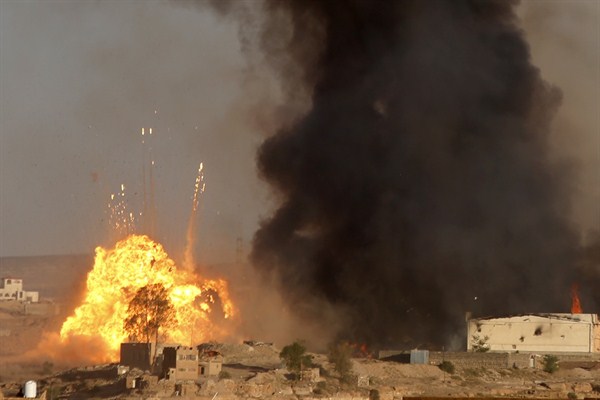The Saudi-led coalition against Houthi rebels in Yemen began as a war waged from the skies, but as it drags on, it is increasingly moving to the ground. In the past week, Saudi Arabia and its coalition partners have deployed more soldiers to Yemen, capped by 1,000 ground troops from Qatar. Egypt reportedly sent 800 of its own soldiers, after rumors last spring of its willingness to join a potential ground war to drive the Houthis out of territory they have seized in Yemen, including the capital, Sanaa.
The Qatari and Egyptian troops join a 3,500-strong battalion of soldiers from the United Arab Emirates that arrived in southern Yemen in August. Last week, 45 of those troops were killed in a Houthi missile attack on an arms depot at a base in the town of Safer in Marib province, east of Sanaa. That setback for the coalition, which includes all the member states of the Gulf Cooperation Council (GCC) except Oman, was the deadliest single day for the Emirati military. Five Bahraini soldiers were also killed.
“The Safer attack in Marib has led Gulf governments to rally around the campaign in Yemen and announce a redoubling of military effort,” writes Kristian Coates Ulrichsen, fellow for the Middle East at Rice University’s Baker Institute, in an email interview.

